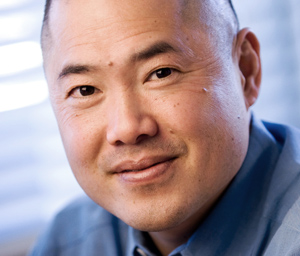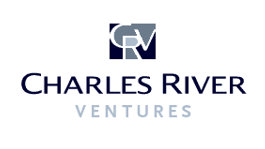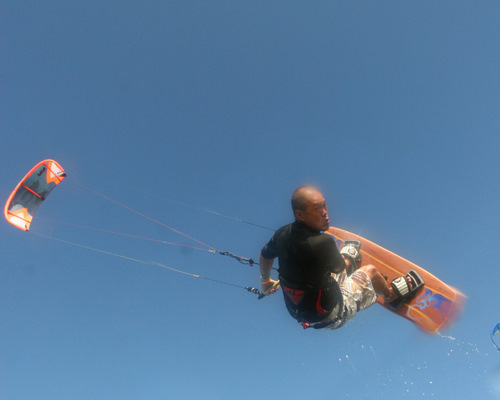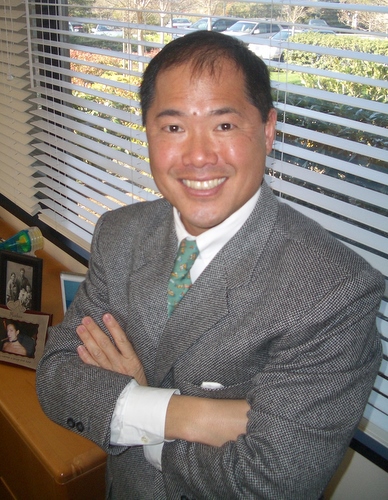- What Does VC Bill Tai Think About China And The Global Economy?
- Hear From A VC About A Company Going Public
- Find Out How Bill Tai Handles Difficult Situations Working With Entrepreneurs
Full Interview Audio

Personal Info
Sports Teams:Cabrinha Kiteboarding, Naish Kiteboarding
Favourite Books:
- Longitude: The True Story of a Lone Genius Who Solved the Greatest Scientific Problem of His Time by Dava Sobel
- When Markets Collide: Investment Strategies for the Age of Global Economic Change by Mohamed El-Erian
Most Influenced By:Steve Jobs, Gordon Moore
Twitter: http://twitter.com/kitevc
Personal Blog: http://www.kitevc.blogspot.com
Company Website: http://crv.com/team/bill_tai
Relevant Link: http://about.me/billtai
Interview Highlights
This is a condensed, lightly edited transcript of an audio interview. The full audio is available and highly recommended. The interviewee may post clarifications in the comments.
Adrian Bye: Today I am here with Bill Tai from Charles River Ventures. Most of you know that I was living in the Caribbean for a long time. One day, I was at the airport, on a flight back from the US to Santiago, and I saw this American looking dude, and we started chatting. It turns out it was Bill going to Cabarete to do kite surfing. It’s a small world. Bill, do you remember?
Bill Tai: I recall a similar thing. While I am a venture capitalist by profession, I am also a sponsored kiteboarder. Cabarete is kind of an epicenter for the sport. I was visiting for a function, and happened to run into you.
Adrian Bye: Why don’t you tell us about who you are and where you come from?
Bill Tai: I got an MBA at Harvard, and then came out to the Valley and have been working in technology and technology related finance ever since. I have been the founder of several companies, one that went public. I did start a company in 1995, that I ended up raising over a quarter billion dollars for, to build data centers throughout Asia. That company, iAsiaworks, went public in 2000. I’ve started some other ones along the way too. I was executive chairman of IPinfusion and ended up selling the company for $50 million. Another company, Tradebeam, was acquired by a publicly listed software company. I did those all the while I was basically a venture capitalist. I tend to do more than one thing at once.
Adrian Bye: You’re in the position where you could do anything you want to do. You could be out there starting companies and in the trenches, but you choose to be a VC. Why do you choose that?
Bill Tai: I do continue to be a VC, but I never stopped doing other things. While I am a professional investor for Charles River Ventures, I continue to fund raw startups on my own, and I do have a couple projects going all the time.
Adrian Bye: It just makes me wonder, as an entrepreneur, if we’re missing something. If you guys have seen something that we haven’t, and we should all be out there being VCs too.
Bill Tai: Absolutely not. I think the venture capital industry does give an individual participating in it the vantage point of seeing lots of waves coming. But I think it’s far more engaging, productive and financially rewarding to actually ride the wave, than just handing the entrepreneur the surfboard, which is what a venture capitalist does. It is fun to be able to fly at 30,000 feet and look at the entrepreneurial community as a set of armies marching up and down hills and going after certain things, but you really feel like you’re alive if you’re in the seat.
Adrian Bye: You’ve had a pretty good series of investments, do you want to talk about some that have done well?
Bill Tai: You’re always most excited about the ones you’re in now. I was very excited to be one of the angels in Tweetdeck, which because Tweetdeck was acquired by Twitter, I’m now an angel investor in Twitter.
I’m quite excited about traction at a company called Tango. Twitter took a good 2 years to get to its first million users. Tango, after it’s launch, hit a million users in 10 days. They are now at 23 million in about a year and a half. It’s a company that feels like it’s on fire, and I was their first investor.
Adrian Bye: How did you find those guys?
Bill Tai: Tango was through kiteboarding. I’m notorious for being extremely passionate about the sport, and the founder of Tango is one of the many people that I’ve encouraged to get on the water and help teach to kite. But it wasn’t just because he kites that I funded him. I had known him for several years prior and just knew there was something special about the guy, his name is Eric Setton.
Adrian Bye: How does it feel on the day you go public?
Bill Tai: I think for the entrepreneurs it definitely feels like a party. It’s interesting because there is a perception that the IPO is the goal line, and in reality, I’ve started to realize that it isn’t. Or if it is the goal line, it’s the other goal line. I’ll tell people we’re on the 1 yard line and it’s not looking towards the goal. You’ve got 99 to go. I think there is a misperception that once a company reaches a certain size and it is profitable that somehow there is this magical point of cruise control. That is absolutely not the case. The bigger the company is, and the more employees it has, the more there is due. It doesn’t end at the IPO. The entrepreneurs always look at it as a celebration of potential liquidity, but it’s never really done.
Adrian Bye: After the IPO, do you liquidate your stock?
Bill Tai: It varies on the kind of company. There are some companies where they have gone public, but product market conditions change, and you’re worried about sustaining momentum. In those cases, there is a tough decision. Do you sell early or do you try to hang on and work through the issues while your holding value is at risk?
There is a regulatory window that typically opens up on every IPO, which is the 6-month mark after a company goes public. The underwriter taking the stock public, they definitely don’t want to list the company’s shares, sell them to the public, and then have you dumping large positions into the market three days after the IPO. Typically, the underwriters ask the shareholders to sign an agreement that says that they will not sell or short any shares for 180 days after the IPO. Everybody, of course, will sign that in order to get the deal done.
Once that window opens up, then the discussions start. Is it time to sell or will we be better off holding? In some cases, if you really have a tiger by the tail, the shares that you hold can appreciate a lot.
Adrian Bye: Bill actually spends quite a bit of time in China, and has good global views. Do you feel like China is going to be safer long term, or are you content where you are?
Bill Tai: The potential of China is enormous over the long term. The overall GDP has been growing there 8-10% year over year, every year. The baseline for the average company doing nothing different than it was doing last year, it is going to grow 10% year over year. Here, the average business isn’t going to grow 1% year over year. A lot of investing and the start up economy is about picking waves to ride and timing it right. When the water is moving, it is a lot easier to ride. China is a gargantuan wave that is going to be in play for a long time.
I do spend time over there, because I have investments over in China. I think China has some great opportunities, because of its size and timing and growth rate, but there are some things that are a little harder to navigate. Team building is harder there because you just don’t have the people that have done it before. I think it can be done, but it is easier to hire experienced talent into any company in the Valley.
Adrian Bye: You’re in an interesting position because you’ve been a VC in the Valley for a long time. You’ve seen this change where in the past there were VCs that were out there, but hard to really know about. Now, we’ve got guys like Fred Wilson, who writes a blog post every day. What do you think about that change?
Bill Tai: It’s a very fundamental change that applies to every service business on the planet. I think the internet has brought a level of transparency to everything we do, including the world of venture finance. Twenty years ago, venture firms were sort of monolithic from the outside looking in. Now, the social web of the internet has allowed a kind of visibility into pieces of organizations. What you see is the personalities become much more accessible. Individuals are now able to build sort of cult-like followings, which wasn’t the case before.
Adrian Bye: I’ve been chatting to a friend, and he’s starting to think we don’t need these business guys, we just need smart developers. We can almost ignore the VCs and just do our thing. What do you think of that?
Bill Tai: We are at a juncture where all of the underlying technologies have been commoditized to the point where the value creation and aggregation is occurring at a certain kind of company. That kind of company is, if you put it really simply, a user interface on data coming off the cloud. Facebook, Groupon and Twitter, the mega hits of today, they are just user interfaces on data coming off the cloud.
There is a huge multiple if you get it right. The distribution and reach is fundamentally altered because of social networks. If you have a hit, something like a Tango, you can get 23 million customers in a year. Fifteen years ago, if it were a hardware business, where you had to try to reach 20 million customers in a few years, the working capital would have been in the hundreds of millions of dollars. The selling and marketing effort to distribute those products was enormously expensive. At this juncture, to find product market fit, you don’t necessarily need a business guy yet, but to scale the business into a company, you probably do. There is a question of timing and when you apply your resources.
It’s having some dramatic effect on the structure of the venture business as well. It has produced a new industry structure where there is a lot of micro VCs that seed and fund the product market fit. Then there is a handful of firms that gush the money in, in huge amounts, to do the scaling for the ones that are really hitting.
Adrian Bye: You have guys like Y Combinator getting in even more upstream than you do. What are your thoughts on that?
Bill Tai: I think it’s because of the shift with the product market fit. You don’t have to make ten or twenty or fifty million dollar bets anymore, you make bets that are tens of thousands of dollars. If I understand the legend correctly, Facebook got launched on $20,000. There’s been a big shift in the risk reward structure of that kind of operation.
Y Combinator is a special case, because they were like a startup finding its product market fit. They were early on the wave, and rode it well. They are in a wonderful position now because they have thousands of startup teams that apply to get in every year, and they’re able to select 30-60 out of that batch, which means that the quality is going to be good and the success rate is higher.
Are they a friend or an enemy? I think they’re a combination. They’re a little bit ahead of the curve. Their quality is good. There’s plenty of room for companies that are going to come out and hit it, and multiple points of entry for venture firms that pick the right ones.
I funded a company that came out of Y Combinator called Scribd. They had some momentum coming out of Y Combinator, and we ended up being one of their financing partners, and the company now has 90 million monthly uniques and is generating some good revenue. Had Y Combinator not existed, I don’t know that the guys that started the company would have come out here. I don’t know that I would have met them. In that case, it was a great to be affiliated with Y Combinator.
Adrian Bye: Obviously, there are times where the VC-entrepreneur relationship can get a bit contentious. The interests are generally quite aligned, but things can get problematic. How do you deal with some of the problems that come up?
Bill Tai: There are many different kinds of things that can get in the way of any relationship between an entrepreneur and a VC. It’s really just about how you handle conflict and stress. Every individual on the planet will handle it in their own way, and some people are better at it than others. Some people approach it with a head-on collision type of attitude, and others work through it. I think, in my case, I do it more through conversation and coaxing, if it’s possible. That said, there have been times where I’ve been involved in situations with management that have been destructive and out of control. Every conflict is unpredictable, and you try to contain and manage to the extent you can.
Adrian Bye: When you’re dealing with entrepreneurs, you’re dealing with irrational risk takers a lot of times.
Bill Tai: Yeah, and that’s why it’s fun. With Steve Jobs having passed away the other day, it forced me to reread a lot of his quotes and to listen to his commencement speech. I think his attitude was just wonderful. When you know you are going to die, you live each day to its fullest. I am so glad that I work with all those entrepreneurs that are crazy, edgy, fun, alive people, because it makes my life feel alive.
Adrian Bye: Anything you want to add in closing?
Bill Tai: I’m proud and honored to be doing what I do every day. We are all in a special time and I’m glad that I’m part of it.









